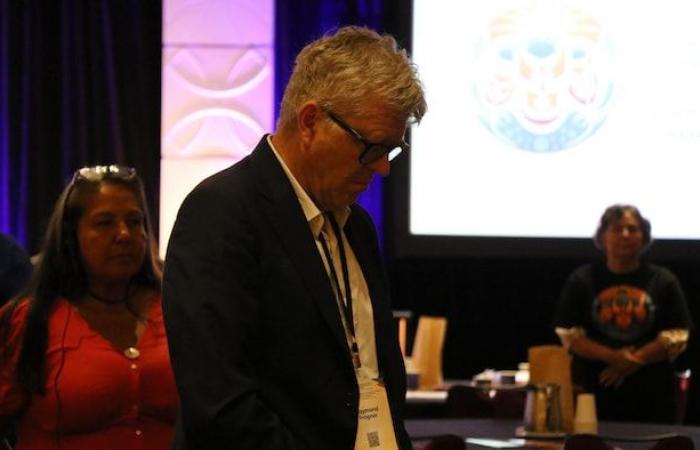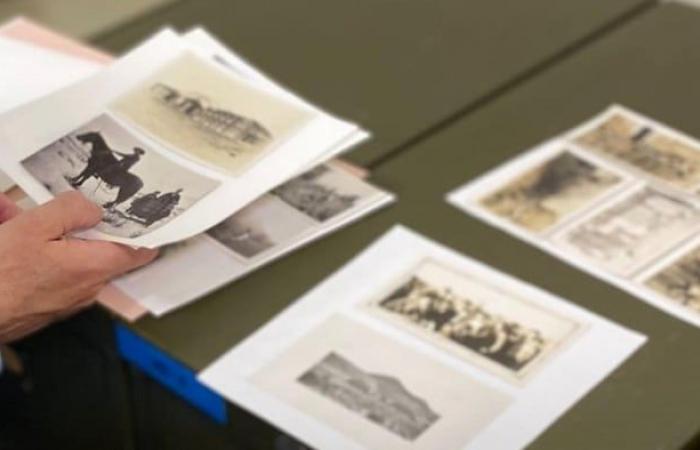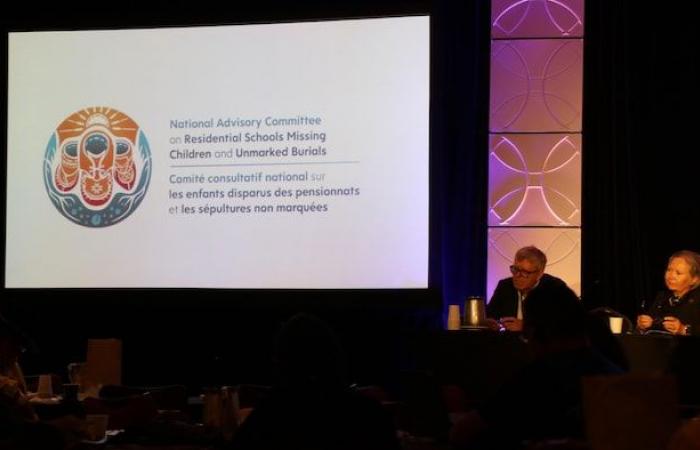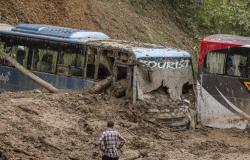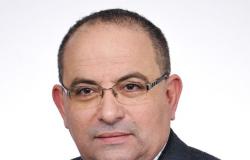At the head of the archives of the National Center for Truth and Reconciliation (CNVR), Raymond Frogner tries to unearth all possible documents and data on Indian residential schools in order to analyze them carefully. A long-term investigation to give a voice to those who have been silenced.
We are what we choose to remember, but we are also what we choose to forget.
The director of research and director of archives of the CNVR don’t hesitate to hammer this sentence home to anyone who wants to hear it. Because the quest for truth about residential schools for Aboriginal people is a long voyage
which is far from over. Millions of documents have yet to be revealed, studied, or even discovered.
Inconsistency in registers, incomplete documents, difficulties in accessing documents, administrative complications… If the CNVR has more than 4 million documents related to the history of residential schools and their aftermath, this is only a part of the existing documents. THE CNVR estimates that there are five times more who have not yet been made available to them or not yet identified.
It’s huge. It’s a long journey, an investigation that will last generations
says the research director for the National Center for Truth and Reconciliation, Raymond Frogner.
Although he feels audience fatigue, he is certain that now we know too much. It’s impossible to go back or stop!
A story that resonates
Raymond Frogner is a discreet person, always with his nose in his documents, his notes or his presentations. Very modest, he talks little about his life, but he is very talkative when it comes to seeking the truth through documents and archives.
He has been compiling, noting, researching for years to bring out the story, the truths, he says. Its objective, and that of CNVRis to give a voice to these silenced stories
pour decolonize these kinds of memories
those of the children who went to residential schools as well as their families.
Open in full screen mode
During public conferences on residential schools, Raymond Frogner discreetly participates in the elders’ moments of contemplation.
Photo: Radio-Canada / Marie-Laure Josselin
Raymond Frogner himself needs to rediscover his family truth. As a young girl, her mother had to leave her first child in her Cree community of Duncan, a First Nation more than 500 kilometers northwest of Edmonton, Alberta. Additionally, she was sent to the Anglican mission at Shaftsbury, from where she escaped to the provincial capital.
She lost all connection with her community when she had a child who she left with her aunt. She kept this story a secret from her children
he explains.
So he grew up without knowing the story of his mother, who died when he was in his early twenties. Fifteen years later, when Raymond Frogner was 35 years old, a man introduced himself to his family.
My sister calls me and asks if I’m sitting down. She tells me that we have a brother and that we are Aboriginal. That’s how I learned the story. When my brother showed up. It was a shock. Until then, I had no idea that my mother was from northern Alberta, with Cree connections
.
Yet, curiously
as he says, he was already an archivist and worked on indigenous and identity issues. It’s weird, because I have no idea why I did that, but that’s life. With this discovery, my work resonated even more strongly.
It took him a while to say it publicly and he only mentioned it at the start of his participations. In his lectures to residential school survivors, he now claims to address the audience as someone with archival training, but also presents himself with a personal story in which the people in front of him will recognize themselves. A story that motivates me to do this emotionally difficult work
he says to the assembly.
If you or someone you know is experiencing residential school-related trauma, you can call the National Residential Schools Crisis Line toll-free at 1-866-925-4419. This service is offered 24 hours a day.
It is also possible to call the Hope Helpline at any time by telephone at the toll-free number 1-855-242-3310 or by chat at hopepourlemieuxetre.ca.
Always painful access
Nine years after the tabling of the Truth and Reconciliation Commission Report, access to archives, particularly of religious orders, is progressing but very slowly
explains Raymond Frogner. According to him, the winds of change have clearly blown after the discovery of alleged graves in Kamloops in 2021.
Under the Indian Residential Schools Settlement Agreement, ratified in 2006, the religious orders that operated the residential schools are required to provide all relevant documents in their possession or control to the Truth and Reconciliation Commission.
However, a recent Senate report highlighted that access to documents from Aboriginal residential schools was still difficult. The first of the recommendations in this document was that the Government of Canada require Catholic groups to submit documents to the National Center for Truth and Reconciliation
.
Open in full screen mode
Raymond Frogner, director of archives at the National Center for Truth and Reconciliation, discovered these documents during a visit to the Oblate General Archives in Rome (Archive photo)
Photo : Raymond Frogner
In 2022, Raymond Frogner had access to the general archives of the Oblates of Mary Immaculate (OMI), in Rome. A first for a Canadian researcher.
However, in 1991, the Oblates apologized for their role in the residential school system and had already indicated their desire to support an effective disclosure process regarding residential schools
. They then offered to collaborate in every way possible so that the full history of residential schools can be written
recognized.
According to the archivist, discussions are underway with the government to gain access to 20 million documents related to the history of residential schools, which represents five times more than what the CNVR.
Another obstacle bothers him: the legal status of certain documents which complicates their access.
Once the documents are in hand, the information must still be complete and accurate. Raymond Frogner takes the example of his mother. I still have a lot of questions. It’s still extremely painful for my brother to talk about it and my sisters don’t really know the story.
The proof is his mother’s death certificate, which states that she is not Aboriginal. It also states that his grandmother was born in Quebec.
My sister put Quebec, because my mother spoke a little French. She had no idea where she came from
he said.
Pointers to the truth
The fact remains that these documents, although imperfect or incomplete for some, remain essential, insists the archivist.
Archival documents on the history of residential schools are the indication, the evidence of the path that must be followed to find the truth. They give direction.
Then, the experiences of survivors provide more details through their experiences, their relationships, their knowledge, their perspectives. I showed my data and documents to survivors and elders and their responses gave me much more information than I could have found, because they understand the archives much better
.
But time is running out because there are fewer and fewer survivors
he lets it fall. Especially since this voice is extremely difficult to find
.
Hence the urgency of collecting as many testimonies as possible quickly. THE CNVR currently has more than 7,000 testimonials, not counting private declarations and sharing circles.
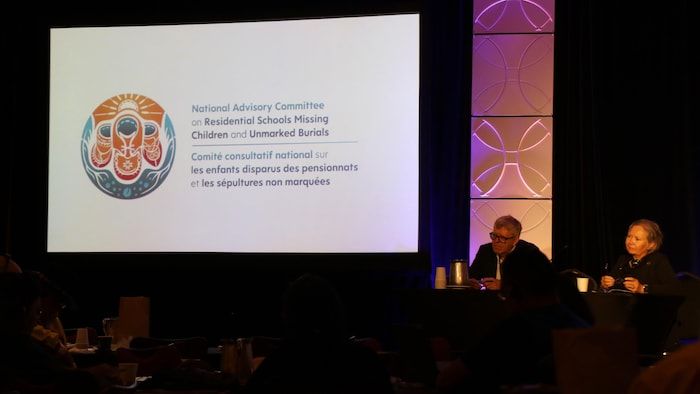
Open in full screen mode
Raymond Frogner listens to survivors during a knowledge sharing meeting in Quebec. His team takes every opportunity to collect testimonies.
Photo: Radio-Canada / Marie-Laure Josselin
If hearing, sorting and scrutinizing so many stories, whether on an administrative form or during a discussion, is difficult, concedes Raymond Frogner, what revolts him is seeing that people question the stories survivors.
They say it wasn’t that bad. But how is that? Even if the children died of tuberculosis or disease, this is an indication of lack of care. That’s 130 residential schools with stories like that. So it’s hard to talk about this without being a little angry
. He then clings to wisdom
survivors and elders.
Citing the committed author George Orwell, he launches telling the truth is a revolutionary act
in front of an assembly. As for the word reconciliation, it’s firstly personal
. He continues: It’s an evolving relationship that continues to change
.
You have to take care of this relationship, otherwise it will die and, for me, that’s how you make a good relationship in Canada. Basically, there is an indigenous identity in the country. As an archivist at CNVRit’s not just the stories we share, but also the stories we preserve and share with future generations that truly matter.
The CNVR provides public access to thousands of documents and photos on its website. It also has archives which are more private and to which it grants access, under conditions, for university investigations or on the sites of research of unmarked burials. Survivors and their families can also request access to a complete file. THE CNVR receives nearly 40 requests per month. Around 2000 files have already been transmitted.

